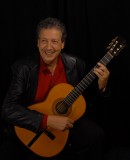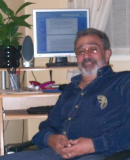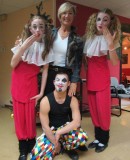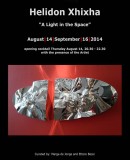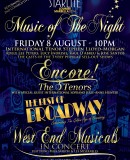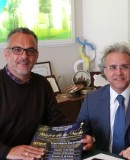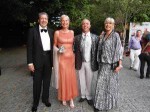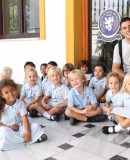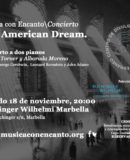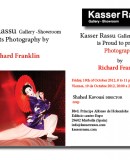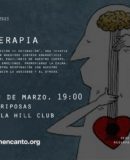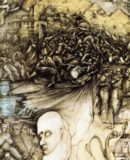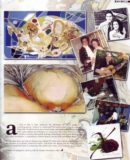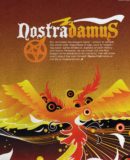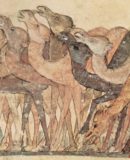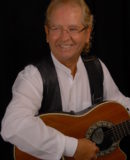Flamenco – The beating heart of Andalusia
Video: First Lady of Flamenco, Sara Baras!! Flamenco por Bulerias – Flamenca Photo – Paul Wilcockson L.M.P.A.
Flamenco – The beating heart of Andalusia
By: Mike Al-Amiry
Do you ever wonder why babies dance before they can even stand-up unassisted..? Do you marvel at how infants too young to understand words respond to favourite tunes..? There is no sight more elevating than a baby holding itself up by clinging-on to a parent’s fingers, bouncing up and down to the music, and toothlessly grinning with delight.
Universally, music is the most inherently primeval communicator, and when it is coupled with words, rhythms and body movements, it can touch the senses in ways that transcend any other language.
I come from a nation of Spanish music lovers, and during my formative years of the 1950s, I grew-up on a veritable feast of aural pleasures which were Spanish by either origin, or by inspiration. The audiences at cinema’s were kept entertained during intervals with rousing Paso doble marches, and cheered by Cha Cha. Revellers at cafes, nightclubs and private parties danced to the rhythmic pulses of the Rumba, Samba, and Tango, and TV viewers were treated to all of the aforementioned plus recorded film footages of classical Spanish guitarists whose fingers fluttered like summer butterflies upon strings with the haunting compositions of Joaquin Rodrigo, or enchanted by Spanish inspired Bizet’s immortal opera Carmen. I was only 9 or 10 at the time and would not have been moved by the Gypsy girl Micaela’s love for Don Jose, but I was as enchanted by the music as any adult.
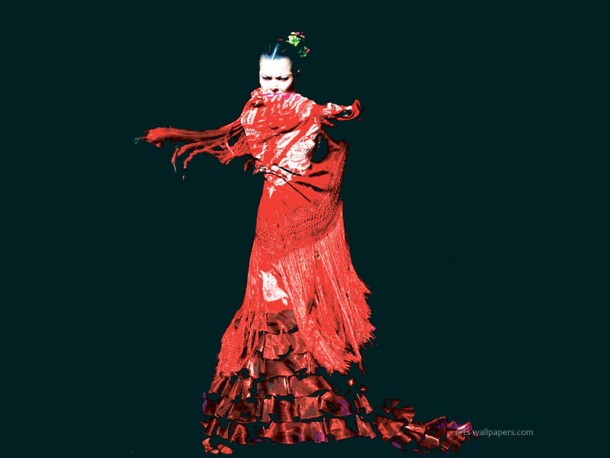
One day a famous Flamenco troop on a world tour arrived in Baghdad; that was in the days when Baghdad was still a city fit for human habitation, and when western culture gently trickled into Iraq as a welcome visitor, and never needed to be imposed upon its inhabitants out of the ends of gun barrels. The Flamenco troop was scheduled for three consecutive nightly appearances at the Opera Gardens, and the public clamour to obtain tickets for the show was unprecedented.
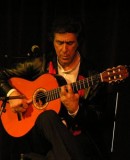 I was the youngest of a brood of six children separated in ages by only nine years, and all of us bar none were devout worshippers of Spanish music. When the Flamenco show was broadcast on the fledgling Baghdad television station, my entire family including our two resident house-maids gathered around the TV set as though it were a magic-box, in a silence that had never been heard in our house before, or since.
I was the youngest of a brood of six children separated in ages by only nine years, and all of us bar none were devout worshippers of Spanish music. When the Flamenco show was broadcast on the fledgling Baghdad television station, my entire family including our two resident house-maids gathered around the TV set as though it were a magic-box, in a silence that had never been heard in our house before, or since.
The box fulfilled its promise and the magic came forth in a flickering monochromic picture that needed no colour to capture one’s attention, accompanied by sounds transmitted long before Stereo and Dolby were ever dreamt of but could still hold the listener an obedient captive, and a choreography that told its tales to the audience in expressive dance and artfully left them to dwell on their own interpretations of every graceful move.
I was too young then and far too transfixed by the show to fully assimilate the impact that Flamenco had upon its audiences, but my love of the art-form never waned, and as I grew-up, I began to understand that the most magical cocktails can be conjured-up out of the most basic ingredients. Guitars, vocals, castanets, hands, and feet, are ingeniously blended and served in a golden chalice of dance-moves borrowed from the angels.
Being an Arab I felt a special affinity and fascination with all things Spanish. I was drawn by Spain’s long and glorious history of Arabian-Moorish heritage, by its people’s renowned generous hospitality, its scenic landscapes bathed in a clement climate and framed by golden sandy beaches, by its fine wines and delicious cuisines, and of course by its music. And upon my first visit in the mid-seventies, I discovered that everything I had heard and read about Spain was true and more.
I was consumed by a sense of anticipation from the moment we landed in Malaga airport and it lasted throughout our entire week’s stay in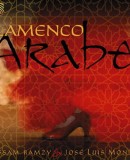 Torremolinos on the Costa del Sol. I was with a friend who shared my tastes, and together we spent the first three days of our vacation turning our backs on glossy well-produced cabaret shows in luxury hotels, and diligently seeking-out authentic Flamenco shows, until we followed the trail of a sound cutting hauntingly through the night air, and found what we sought.
Torremolinos on the Costa del Sol. I was with a friend who shared my tastes, and together we spent the first three days of our vacation turning our backs on glossy well-produced cabaret shows in luxury hotels, and diligently seeking-out authentic Flamenco shows, until we followed the trail of a sound cutting hauntingly through the night air, and found what we sought.
It was in an obscure Bodega, located on an obscure narrow alley in the old part of town, offering an obscurely limited Tapas menu; but all obscurity ended when we entered.
An elderly gentleman in his sixties was seated upon a stool on a make-shift stage, and he was soulfully singing in a husky high-pitched voice; the song sounded like a tragic lament and the tune spoke of loss and sadness that touched the listeners’ hearts. Then suddenly and out of the closely packed audience around the orange-crate stage, a solo guitarist joined the singer from one side, whilst from the opposite side a female dancer stepped on with tapping feet that moved in unison with the staccato sounds of her castanets. Many members of the audience began clapping rhythmically complimenting the music, and the whole show became an adrenaline high that my friend and I could neither come down from, nor wanted to.
We became regular denizens of that simple Bodega for the remaining four nights of our vacation, were befriended by the owners and the other regulars, and made to feel like members of that intimate family club of Andalucía, even though we could never perfect the art of alternate rhythmic clapping and kept getting it wrong to an embarrassing degree. We fully enjoyed every moment we spent at that humble establishment and came to understand that a true artisan needs no elaborate stage-settings, grand regalia, or complex orchestral manoeuvres; a true artisan can reach-out and play his music on his listener’s heart-strings, with skill and little else.
The paintbrush does not create the masterpiece, but the hand that holds it does. Flamenco is an art that first requires talent, which is then augmented by dedicated learning, developed skills, and most importantly a heart that beats with emotion. It is the language of one heart communicating with another. It is a language that is immortal, and should mankind engineer his own extinction and disappear from this planet, he will leave behind this priceless legacy, and the mountains of the Sierras will rejoice in its echoes for all of eternity.
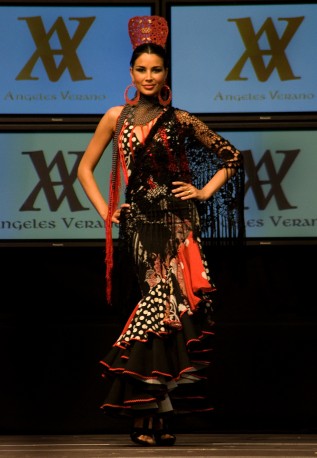 Photo: Paul Wilcockson L.M.P.A.
Photo: Paul Wilcockson L.M.P.A.
Contact : mike_alamiry@hotmail.com
Disclaimer: The views, opinions and positions expressed within this guest article are those of the author Mike Al-Amiry alone and do not represent those of the Marbella Marbella website. The accuracy, completeness and validity of any statements made within this article are not guaranteed. We accept no liability for any errors, omissions or representations. The copyright of this content belongs to Mike Al-Amiry and any liability with regards to infringement of intellectual property rights remains with the author.

